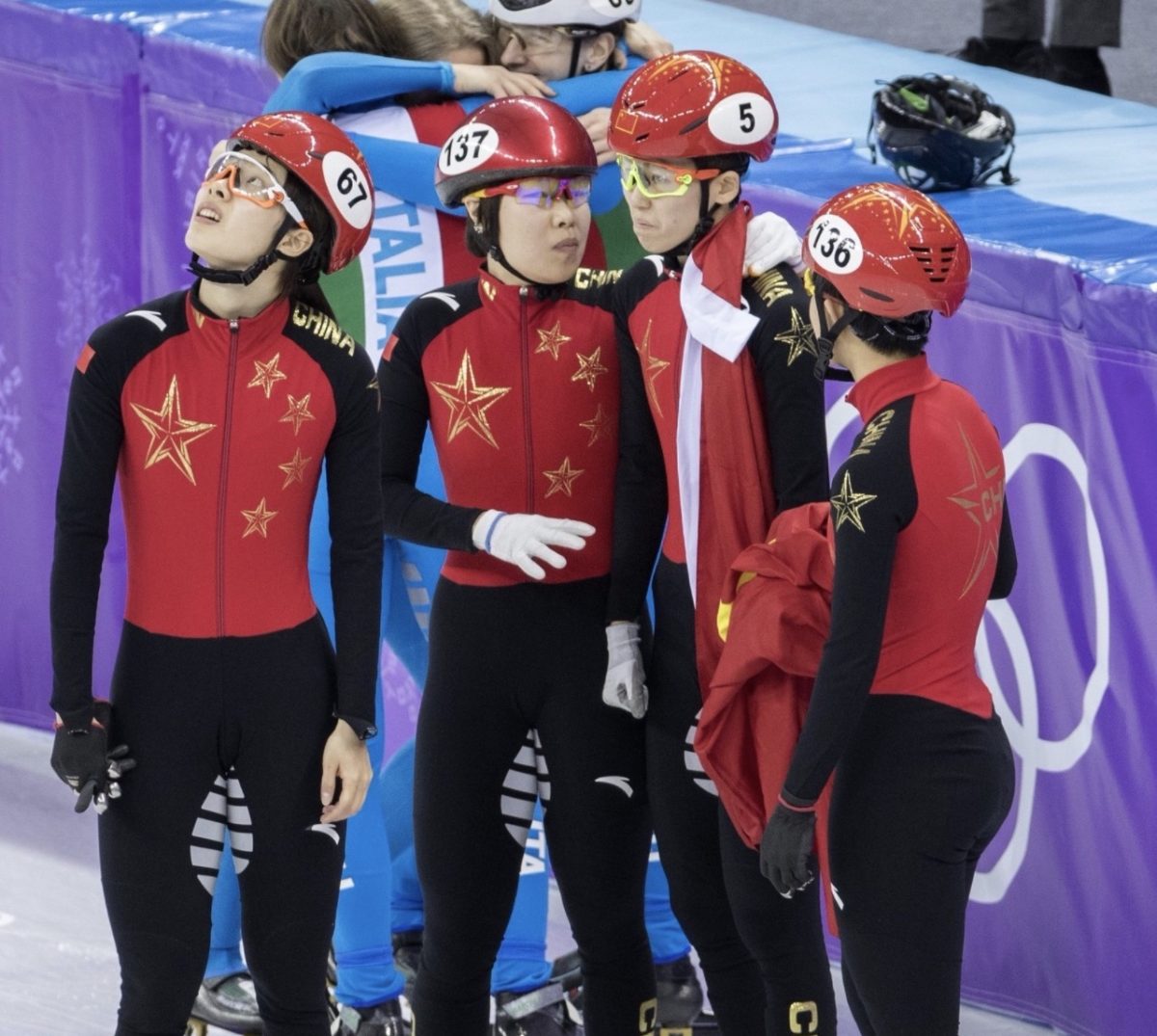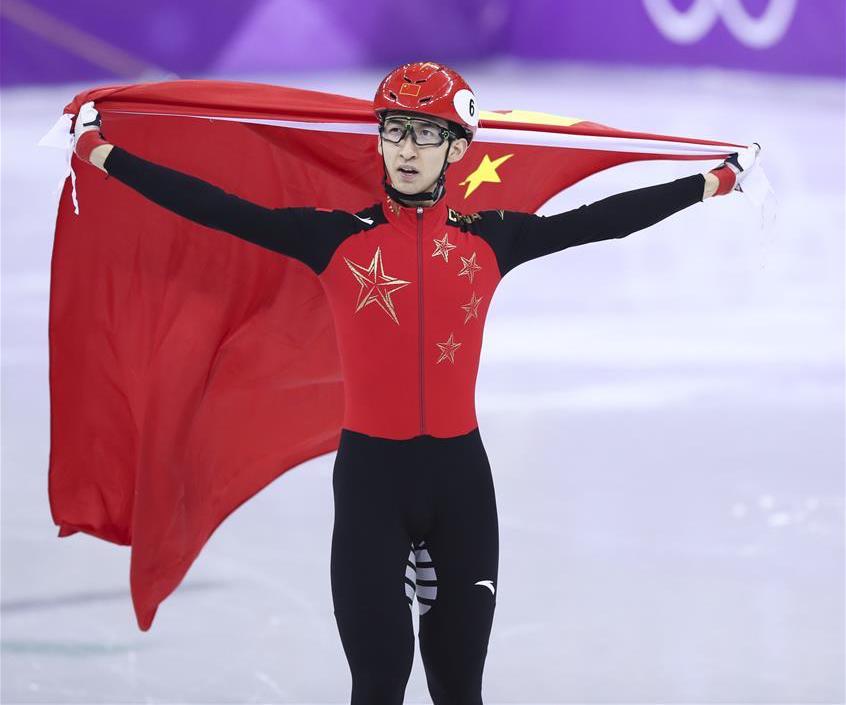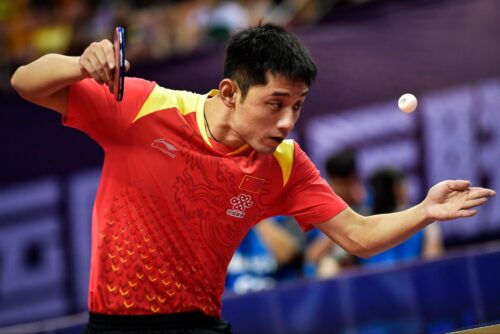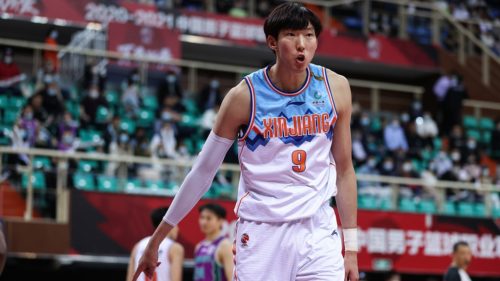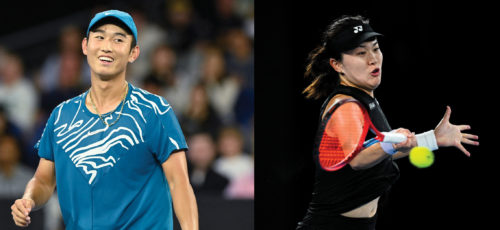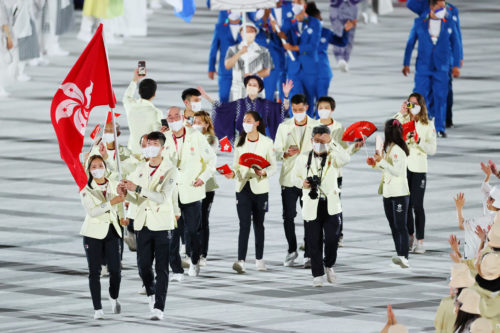How badly was China screwed in short-track speed skating?

The China Sports Column is a The China Project weekly feature in which China Sports Insider Mark Dreyer looks at the week that was in the China sports world.
Despite pre-Games warnings from Chinese officials that medals would be hard to come by and that it was a real possibility China could return from PyeongChang with no gold, the public had become used to feasting on Olympic titles since the 2008 Summer Games. With three won in Sochi four years ago and some of the more reliable prediction algorithms tipping Chinese athletes to win six events, expectations were high, especially with the build-up to 2022 increasing interest this time around.
But, event by event, China just didn’t have the golden touch.
The first medal — a silver — came on Day 4 in the ladies’ halfpipe, though with Korean American teenage star Chloe Kim in the field, second place was probably as good as a victory for Liu Jiayu 刘佳宇. Two days later, Sui Wenjing 隋文静 and Han Cong 韩聪 finished agonizingly close — less than half a point — behind a German duo in the pairs figure skating competition, netting another silver. On Day 7, Zhang Xin 张鑫 and Kong Fanyu 孔凡钰 both finished on the podium in the ladies’ aerials on Day 7, but neither stood on the top step. Short track speed skating delivered on Day 8: another silver, to Li Jinyu 李靳宇 in the ladies’ 1,500m.
But it was the events where China failed to finish in the top three that really captured the imagination — and sparked the rage — of the nation.
Short track is the Fast and the Furious of the Olympics and is notoriously unpredictable, with collisions, crashes, and resulting penalties more often than not deciding key races. Britain’s Elise Christie, for example, is one of the best on the planet and a multiple world champion, but has crashed out in six successive Olympic races in which she has had genuine medal hopes, and disqualified in five of them.
But for the expectant Chinese public — instant armchair experts, like 99 percent of those watching Olympic events — there was something fishy going on. Time and again, they saw Chinese skaters being penalized while their Korean counterparts were given a pass. Meanwhile, the host nation racked up three golds and six total medals in short track competition.
It all came to a head in the women’s 3,000m relay final, when an incident between a Chinese and a Korean skater left the Chinese team disqualified, giving the Koreans their third short track gold of the Games. A Chinese appeal was rejected because it came after the 30-minute cut-off following the race, but according to Chinese coach Li Yan 李琰 — who herself won short track silver at the 1992 Olympics — the referees were in a meeting right after the race so the team hadn’t been able to submit their appeal.
https://twitter.com/BClarahan/status/965994070442106880
The International Skating Union (ISU) then took the unprecedented step of explaining the decision on its website, posting a picture which clearly showed China’s Fan Kexin 范可新 impeding Korea’s Choi Min-jeong. But viewers later posted their own screenshots of the race, which appeared to show a Korean skater holding back a Chinese rival. Canada, which had briefly taken the lead with six laps to go, was also disqualified for clashing with Korea.
https://twitter.com/Katherine_9024/status/966594652064292864
https://twitter.com/xinningli/status/966246313623990272
https://twitter.com/_oh_my_Lorde_/status/965977804876623872
This latest affront was simply too much for many to bear, with parallels made online to South Korea’s suspiciously fortunate run to the semifinals of the 2002 FIFA World Cup — again on home soil — while others even called for ISU officials to be banned from entering China for the 2022 Olympics.
Relay member Zhou Yang, who has won three gold medals across the past two Winter Games, made a pointed remark after the race, saying the Beijing Olympics in 2022 “will definitely be fair.”
A more measured response, however, had come earlier from Yang Yang 杨扬, an IOC member and China’s first-ever Winter Olympics gold medalist, who noted that the ISU had made some rule adjustments in recent years and concluded “the penalties that China received show that we don’t understand the rules well.”
All of this is a long setup for what we’re really here to talk about: On Thursday evening, Wu Dajing 武大靖 absolutely blitzed the competition in the men’s 500m to give China its first gold of the Games. Wu won in a world-record time, claiming China’s 10th short track gold medal in history — but the first to be won by a man. He remarked wryly afterwards that he wanted to lead from the front so as not to give either his competitors or the judges a chance to disrupt his race.
China could well have doubled its gold medal tally less than an hour later when Wu and three teammates were pipped at the post by underdogs Hungary in the men’s 5,000m relay.
China’s medal total — almost certain to be final — of one gold, six silver, and two bronze medals is the same number, nine, as in 2014. Significantly, China won three golds in Sochi. However, Wu’s magic moment meant the Chinese national anthem was finally given an official airing in PyeongChang, and provided a closing high as the focus now turns toward 2022.
Somewhat cryptically, Wu said afterwards that he planned to celebrate his two medal-winning performances “in the Chinese traditional style, and it’s a secret.”
Expect to see him on the baijiu this weekend.
A couple of potentially ugly incidents have blown up on social media in the past few days surrounding separate sport-related comments. In the first, former aerials skier Jacqui Cooper, now at analyst on Australia’s Channel 7, was forced to defend herself after describing China’s Yan Ting 颜婷 as “very Chinese,” before adding, “They all look the same. Very hard to tell who is who.” In comments on Twitter, and backed up in a statement issued by the broadcaster, Cooper explained that she had been referring solely to technique, since all the Chinese skiers were trained by the same coach to jump in the same, very technical manner. Predictably, though, not all of the raging mob online was satisfied.
https://twitter.com/JacquiCooperSKI/status/964121795271057409
That followed the circulation of a Tencent-produced video featuring a number of NBA players sending Chinese New Year greetings in both English and Mandarin to fans in China. But one Weibo user zeroed in on what appears to be Philadelphia 76er JJ Redick saying the word “chink” as part of his message, which caused outrage after the clip went viral. Redick apologized on Twitter, saying that he had swapped the words of the greeting message at the last moment and got tongue-tied as a result, while Jeremy Lin — subject of a similar controversy a few years ago — defended Redick. However, as with the Cooper incident, opinion remained split as to the true intent behind the words.
In other news:
- Wanda may use the money it’s just received from selling its stake in Atletico Madrid to buy newly promoted Chinese Super League club Dalian Yifang.
- Reports out of Italy say AC Milan boss Li Yonghong is broke.
- Ping-pong makes its New York Philharmonic debut (seriously).
The China Sports Column runs every Friday on The China Project. Follow Mark Dreyer @DreyerChina.
